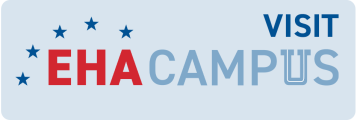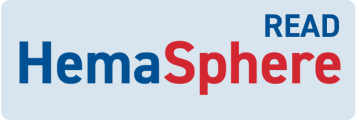SWG Educational Activities
1. EICML
The long-anticipated Windsor EICML meeting, postponed twice due to the COVID-19 pandemic, took place in May 2022. Sixty physicians and scientists met in the historic venue of Cumberland Lodge, in Windsor Great Park, with others joining virtually, to spend two days discussing emerging data and developing collaborations. Moving tributes were paid to Michele Baccarani, Jorg Hasford and Sante Tura. Topics under discussion included:
- News from the labs
- First and second-line treatment
- Beyond second-line treatment
- Side effects and quality of life
- Treatment discontinuation
- Challenges of advanced phase disease
2. ELN Meeting March 2022
The family of the ELN community met in Mannheim to continue this remarkable collaboration of individuals and national study groups. CML is addressed within Working Party 4 and participants discussed the following:
- ELN/iCMLf/HARMONY TFR registry project L. Stenke
- European blast crisis registry A. Brioli
- Blast crisis in CML: The Matchpoint study M. Copland
- Blast crisis and transplantation E. Lomaia
- Defining the beginning of progression T. Ong
- EURO-SKI, final analysis S. Saußele
- EUTOS 2022 cooperation in CML biology A. Hochhaus
3. ELN Breakfast Meeting December 2022
Early risers took the opportunity of attending the 2022 ASH meeting in New Orleans to further the WP4 - CML discussions. The program included:
- Report on the data obtained on asciminib in real-life clinical use V. García-Gutiérrez
- Update in TFR i. How information from clinical trials translates to clinical practice. F. Mahon
- The emerging importance of detecting compound mutations
- Impact on Mental Health, disease management and socioeconomic modifications in haematological patients during COVID-19 pandemic. E. Abruzzese
- State of the new ELN CML recommendations A Hochhaus
4. ESH-iCMLf
The ESH-iCMLf John Goldman meeting took place in Mandelieu-La Napoule, France in October 2022. A special symposium was held to celebrate the life and achievements of Professor Michele Baccarani. The John Goldman memorial lecture was delivered by Andreas Hochhaus, the Janet Rowley lecture by Oliver Hantschel and the iCML prize was awarded to Jan Geissler and Giora Sharf. Delegates gathered fron across the world to join the scientific sessions. Workshops for non-clinical scientists were well attended by both scientists and physicians. Hot topics were the subjects of stimulating and provocative debates, including ‘Is ponatinib still the drug of choice for 3rd line therapy?’ (Jorge Cortes vs Delphine Rea) and ‘What is the most important factor for CML persistence of the disease? Extrinsic or intrinsic factors?’ (Daniele Krause vs Mirle Schemionek-Reinders). Meet the Expert sessions included:
- Understanding Biology of Leukemia/Practical implication of multimix approaches in leukemia – Charles Mullighan (Memphis)
- Leukemic stem cell biology – Andreas Trumpp (Heidelberg)
- New frontiers in drug development in cancer – Stefan Knapp (Frankfurt)
- Management of advance stage CML – Maihri Copland (Glasgow)
- Challenging scenarios for TFR – Susanne Saussele (Mannheim)
- Management of TKI adverse event – Jeff Lipton (Toronto)
5. EUTOS
Funding allowed the successful renewal of the long-running EUropean Treatment Outcome Study (EUTOS) in 2022. The overall objectives of this scientific research are to sustain and foster the collaboration between academia and industry for the collection of baseline-, treatment-, and outcome data of representative samples of CML patients of major European countries.
This will be achieved by
- implementation of cytogenetic, genomic and proteomic technologies to evaluate the clonal hierarchy of CML prior to and during the course of the disease and in particular the prediction of the efficacy of the specific BCR::ABL1 (STAMP) inhibitor asciminib in 3+ line of therapy;
- modelling the structural changes of the BCR::ABL1 protein with distinct mutations to optimize combination therapy with asciminib and ATP competing drugs;
- continuing the research on persisting stem cells after asciminib therapy in CML patients in deep molecular response and to translate this data into clinical trials targeting persisting disease after discontinuation of TKI;
- modelling the effect of asciminib on normal hematopoiesis to reveal causes of cytopenia;
The project will continue to make use of the existing cooperation structures between local and regional leukemia study groups in the field of CML for the accomplishment of the objectives and for the dissemination and exploitation of Project results.



 Back
Back